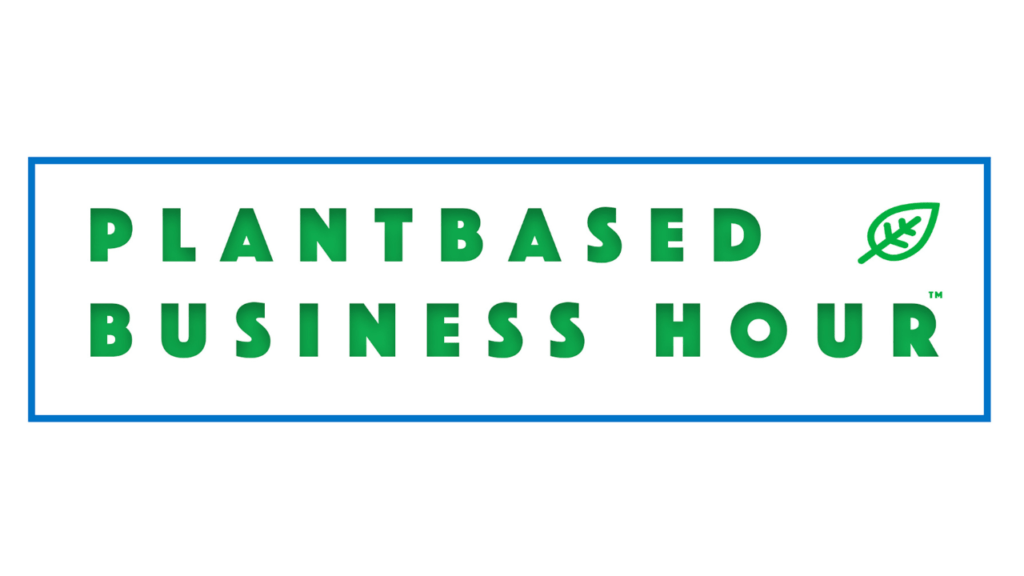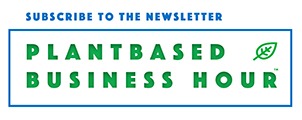
CEO of the Food System Innovations, David Meyer, joins me on The Plantbased Business Hour to discuss the global food systems transformation towards sustainability, optionality, and efficiency, along with increasing animal welfare and human and planetary health. What will move the needle the most? Policy? Technology? Consumer Demand? Industry Sustainability? Lots to breakdown and we get to it all.
Specifically, we discuss
- The issues plaguing the plant-based sector and the solutions needed to evolve the industry such as making open-source research and resources available, lowering ingredient costs and more,
- The growth patterns emerging for the sector,
- The importance of engaging China in alt proteins,
- The role policy and government investment plays in growing the sector.
Below is a short clip and transcription from our long-form conversation.
Elysabeth: I also love what you say about the timing: that we really have to make this replacement by 2050. That means the innovations happen now. You don’t replace an entire global food supply system that’s worth $8 trillion- you don’t replace that in 2049 just in time for 2050. That kind of scale, which is why I opened this show saying that I’m not sure that people understand the scale of what we’re talking about, meaning 80 billion land animals in factories. It’s a colossal shift that has to happen. So, the innovations, we support that with investments now, and the transitions start just like the curve says in 2030 and then to 2035 and onwards.
David Meyer: I think the carbon markets can help. You know I have a pet peeve about the term carbon. People will talk about carbon footprint when, of course, there are greenhouse gasses like methane which, of course, comes from cows and ruminants and notably nitrous oxide which comes from fertilizer decomposing, like chicken, which is just 300-times worse than carbon. So, we talk about the carbon equivalency of those greenhouse gasses…
Elysabeth: Can you repeat that? Sorry, I want to make sure I get that.
David Meyer: Sure, there are other greenhouse gasses that other human activities release besides carbon. Carbon is the catchall term that we use like your carbon footprint. For example, in animal agriculture, which is a huge contributor to climate, more than the entire transportation sector, the gasses are, of course, carbon involved in transporting and things like that, but also there’s methane which comes from ruminants and that’s pretty well known, but that’s many times worse in the atmosphere than carbon. There are other chemicals that come out of both the chicken manure and also the fertilizers that we use that we have to use on mass to grow the amount of feed that we need to feed the animals, which is way more food than we would need to grow to feed people. With these kinds of different chemicals, you’re getting much worse an effect than carbon. I refer to them with carbon equivalencies. So nitrous oxide, for example, these kinds of things have a 300-times carbon equivalency.
Elysabeth: Yes, right, but what was it about decomposing? I’m sorry, decomposing chickens have an impact?
David Meyer: Yeah, so people think of chickens as less environmentally problematic than cows and that is true when you compare a chicken to a cow and it’s true in general in the industry. But it doesn’t mean it doesn’t have a terrible impact. One of the largest impacts is from all of the manure that comes out of the chickens because that decomposes and that goes into the atmosphere. And then you’ve got, as I’ve mentioned, all of the-I mean there’s billions of chickens- so you’ve got all of the chemicals that we need to use to grow the feed to feed the chickens. So, chicken has a significant GhG footprint. It’s just not as bad per animal as cows, as ruminants, but it is way worse than plant-based chicken.
Elysabeth: Yeah, again we’re talking about benchmarks everyone. These conversations only make sense when you compare it to something. So I understand this comparative benchmark and I think most of the listeners do now, as well.

New episodes are out every week. Never miss the Plantbased Business Hour or Minute. Subscribe on iTunes and Youtube, and sign up for the newsletter. Follow Elysabeth on Linkedin. For information on Plant Powered Consulting, click here.



